Media | Articles
The fruit of his labor: Michigan-made orchard tractor is one of just 14
George Randall’s prized tractor is a rarity, and not just from being one of 14 of its kind ever sold.
Yes, the 1958 Friday Special Heavy Duty orchard tractor that Randall has owned since 2006 is obscure, an orphan. But it’s also an example of a locally made product tailored for local use – uncommon in the modern production realm with huge manufacturing plants serving mass markets.
The Friday was very much a neighborhood tractor-factory tractor.
Yet, being locally produced for local use isn’t so uncommon in agriculture, where climate and terrain dictate the crops grown and how machinery adapts to fit the needs.
Randall’s tractor was built in Hartford, Michigan – the heart of southwestern Michigan’s fruit belt. Although capable of fieldwork, the Friday Special Heavy Duty was created for maneuverability in orchards, for towing a trailer loaded with wooden boxes to and from the orchard and for running a forklift – mounted on the nose – to load and unload the trailer.
Marketplace
Buy and sell classics with confidence
Friday Tractor Company was the brainchild of David Friday, a Michigan State University graduate who farmed 80 acres south of Hartford. In the 1930s, he threw together his own tractor out of salvaged Ford parts. A series of similar “specials” followed for customers. Sometime later, Friday bought out Love Tractor, located in a nearby town. In all, he built 143 tractors, including a garden tractor for cultivating strawberry fields.
“It’s a power hoe,” Randall said in a phone interview from his home in Granby, Mass. “It’s an oversize go-kart that you sit in and steer with your feet.”
Of the 143 machines built with serial numbers from 1948 to 1960, according to the build sheets, 14 were classified as being Special Heavy Duty. Constituted of sterner stuff, these special models look as though they would munch a go-kart for breakfast. “The metal on this thing was very, very solid,” Randall said. “They used a lot of steel from bridge abutments—it’s real solid stuff.”
Despite its limited production between 1954 and 1960, when the last two examples were finished, the bodywork is remarkable for its graceful curves and simple, flowing lines. No one would suggest mock-ups and clay models were crafted in a studio, yet the design process was obviously a scrupulous one.
“It has big sloping fenders so you can sit low and drive under the tree branches,” Randall said, “and a wide sweeping hood so the branches would slide right up over the fender.”
Like Massey-Harris and a few other tractor companies, Friday Tractor used a Chrysler inline six-cylinder engine. Chrysler’s flathead-six first appeared in 1929, in a DeSoto, and stayed around for industrial applications until 1972. It was offered in various configurations, displacing as much as 265 cubic inches in the IND 32 version that’s used here. It was significantly undersquare, with a bore and stroke of 3.43 x 5.75 inches, and had a low 6.8:1 compression ratio.
“That was why you could run these industrial engines at a constant speed,” said Randall, who is 66 years old and parted with most of his collectibles when he entered into to semi-retirement.
The Chrysler enthusiast website Allpar.com reports a critical output of 218 lb-ft of torque at just 1,600 rpm. In other words, the six was excellent for tractors and other farm equipment. A five-speed transmission and single-speed Timken rear axle complete this Friday Special Heavy Duty’s drivetrain. The combination results in uncommonly high road speeds.
“I’ve been ‘radared’ at 37 miles per hour,” Randall said. “But there’s no need to be going that fast with that kind of tractor.” The rear tires are internally weighted with a calcium chloride solution, adding ballast for fieldwork but contributing to iffy road manners.
Records show it was initially sold to Fred Molter, a farmer in Dowagiac, Mich., about 20 miles from Hartford. The $2,955 purchase price included $305-worth of hydraulic accessories. Randall bought his Friday Special from Molter’s son for $7,000 after a terrible accident had occurred. The tractor was being used to pull down an old barn, but things went wrong and a beam broke, striking a worker and claiming his life.
Beyond the tragedy of a lost man, the barn wall had collapsed over the tractor, leaving many dents. For a former body shop manager like Randall, the damage was only a minor issue. And he found the engine still chuffing along nicely. “The only thing I’ve done was all the basic stuff, a basic tune-up. However, the motor is getting tired, and a complete overhaul is coming.”
After a yearlong restoration, Randall used the Friday Special in tractor pulls in New York, Massachusetts and Vermont. But more recently, it has been devoted to shows like the one he was about head for in Maine.
When it’s displayed there, people will look at this curiosity, and Randall is sure to hear the same old smarty-pants question as usual. Someone will ask, “Why is it a Friday instead of a Monday?”
Randall could respond that, in a way, it is—because assembly was completed on Monday, April 14, 1958. As the tractor stayed in the neighborhood, it probably went to work on Tuesday.

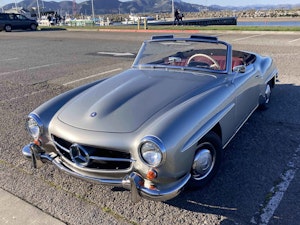
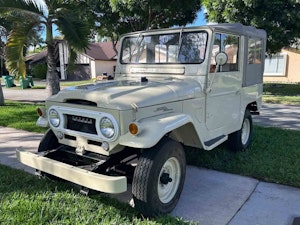

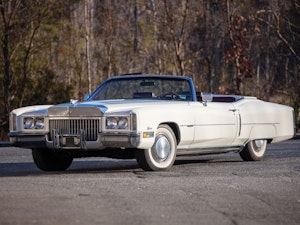
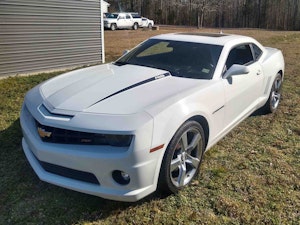
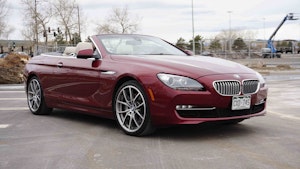
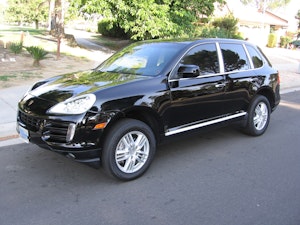
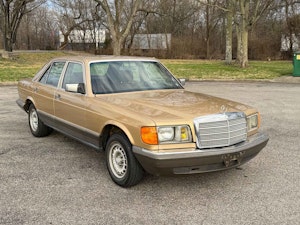


The idea for the Power hoe was hatched when Dave was flying his airplane steering with his feet. Our biggest sales were Cherry harvesting and Apple harvesting equipment. We also had a Rotary Hoe, Straw spreader and trailer, 2 different pruning “towers”